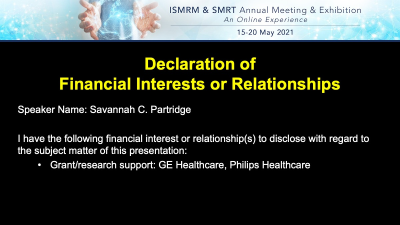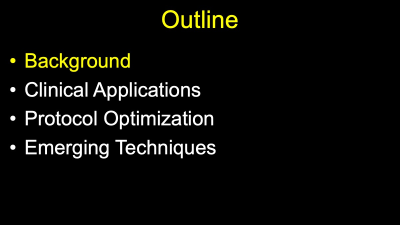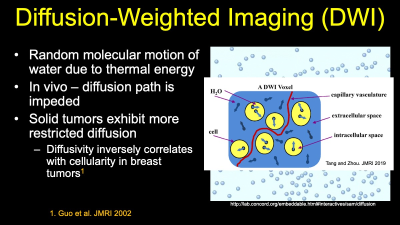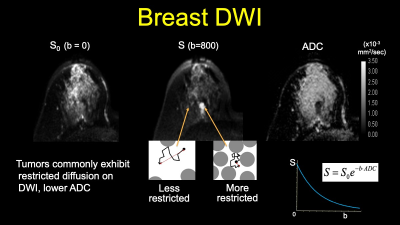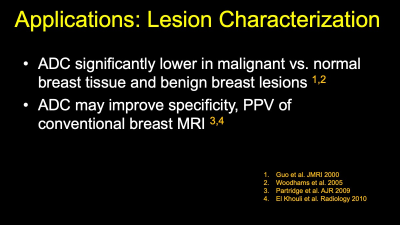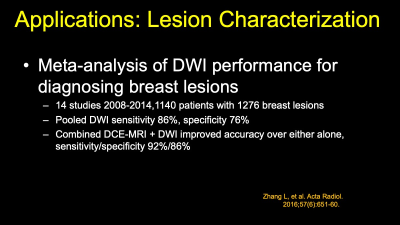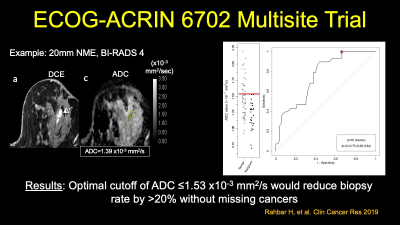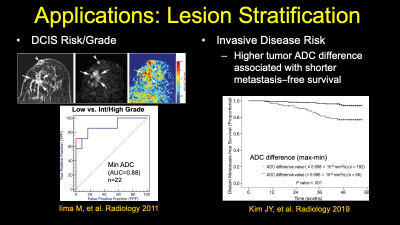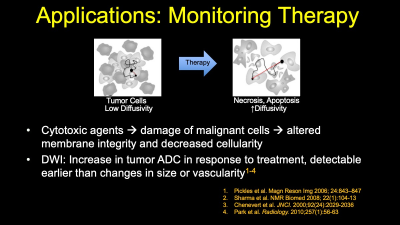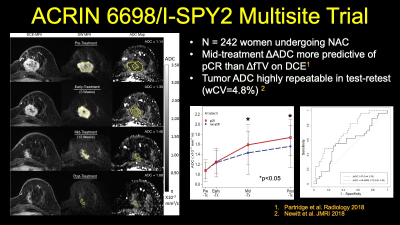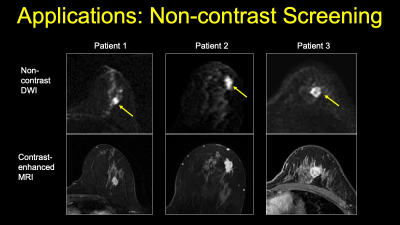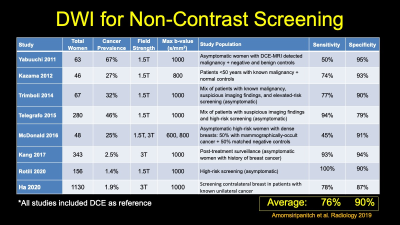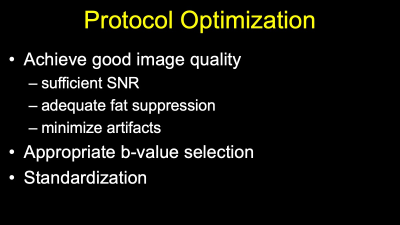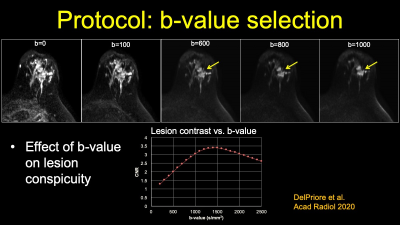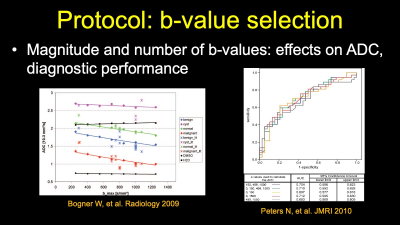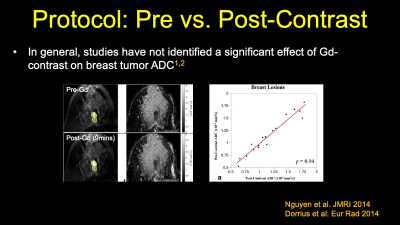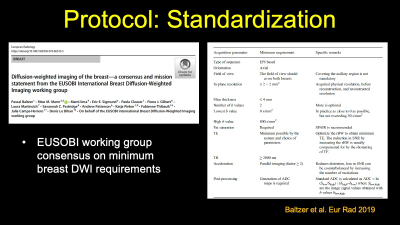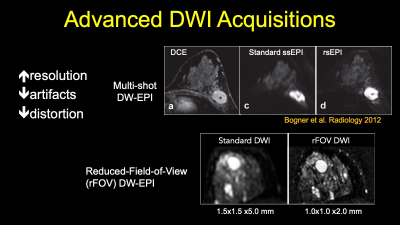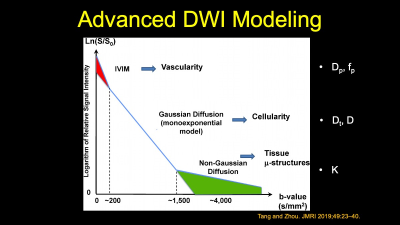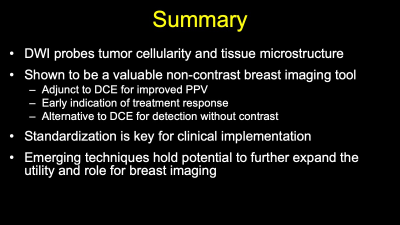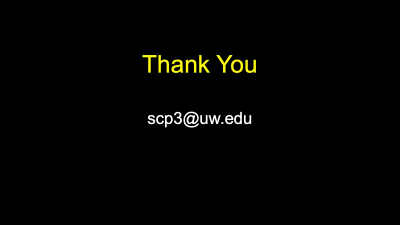Diffusion-Weighted Imaging of the Breast
1Radiology, University of Washington, Seattle, WA, United States
Synopsis
Diffusion-weighted imaging (DWI) holds promise to address shortcomings of routine clinical breast MRI and to expand imaging capabilities in breast cancer management. DWI reflects tissue microstructure and provides unique information to aid in detection and characterization of breast lesions. Potential applications include improving diagnostic accuracy, guiding treatment decisions, and non-contrast screening. DWI is increasingly being incorporated into breast MRI protocols, and results of multicenter trials and recent standardization efforts are helping to establish clinical guidelines. Advancements in DWI acquisition and modeling approaches are emerging to improve image quality and extract additional biologic information from breast DWI scans.

